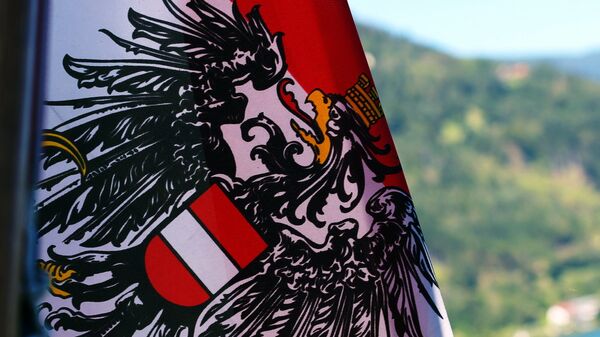A poll conducted a year after the Austrian election has revealed that 49% of Austrians trust in the government formed by Sebastian Kurz’s conservative People's Party (ÖVP) and the right-wing Freedom Party (FPÖ), the local magazine Profil reports. According to the survey, authored by Peter Hajek, an independent researcher from Public Opinion Strategies and People’s Party analyst Franz Sommer, only 45% of respondents voiced dissatisfaction with the policy of the conservative coalition government.
According to this study, 51% of respondents were convinced that Austria is going in the right direction, and only 40% were said to be dissatisfied. The researcher points out that only a fifth of those polled approved of the previous government's "grand coalition," which brought together the conservatives and Social Democrats, by the end of their term; dissatisfaction with the political odd couple had risen to 72 percent by October 2017.
Kurz’s ÖVP won around 34% in the Sunday poll; the Austrian Social Democratic Party won 28% and the FPÖ won 25%. Kurz’s party could even improve its numbers from the election last year when the SPÖ received around 27%, and the ÖVP secured 31.5% of the vote. However, the Social Democrats may have lost some points since then.
READ MORE: Austria's Resurgent Right Gains From Disillusionment with EU — Magazine Editor
The Austrian scholars described this as an “end of the Austrian grand coalition chapter.” The German outlet Focus pointed out that Kurz’s decision to change the coalition partners and to opt for an alliance with the right-wing FPÖ of Heinz-Christian Strache might have played out well.
This contrasts to the situation, German Chancellor Angela Merkel has had to deal with following the the 2017 election. After almost six months of negotiations, her Christian Democratic Union and its Bavarian sister party, the Christion Social Union, struck a grand coalition deal with the Social Democrats, whom they had partnered with during the previous term.
In the 2017 elections, 34.1% voted for the Union (the short name for the CDU/CSU alliance), while the SPD received 20.5%, a historic low. The Sunday survey of “infratest dimap” revealed that the two governing parties could not even keep these numbers. The Union shed 8 points in the poll, receiving only 26%. Meanwhile, the SPD only attracted 15% of voters, dipping below the right-wing Alternative for Germany party (AfD) and even the Greens with 17 percent.
The outcome of the Bavarian regional election, which both the SPD and CSU/CDU describe as a “bitter” result and a “signal to Berlin,” has mirrored this tendency. The CSU suffered from their lowest result in decades with 37% of votes, while the SPD came in behind the Greens, the Free Voters party and the AfD, with less than 10%.


